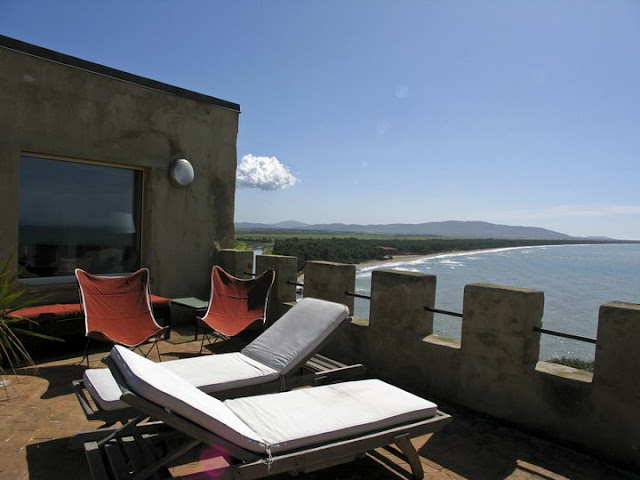A region on the West coast of Italy, Tuscany is a fantastic destination for a truly unique vacation. Lying on the Tyrrhenian Sea Tuscany benefits from great beaches on one side and yet is also surrounded my magnificent countryside on the other. Major towns and cities in the area include Pisa, the location of the famous leaning tower and Florence, two of Italy’s most visited places.
Tuscany is divided into regions, one of which is called the Chianti Classico. For those of you who enjoy a glass of wine you may recognise the word Chianti as it is one of Italy’s finest exports. For this reason, the area is dense with vineyards, surrounded by small towns, castles and villas and makes a lovely change from the hustle and bustle found in many of Italy’s other regions and large cities.
To really get a feel for the rural area it is recommended that you utilise “agritourism” as your accommodation. This is a nice change from standard hotels as it involves staying on a farm or vineyard in a spare room, apartment or additional housing area which is rented out by farmers to supplement their income. Many of these are well established and offer the additional facilities a hotel may have, such as a swimming pool. If you are staying within the main accommodation with the family, your meals may well be included and you can be sure of a fantastic home cooked Italian feast every day of your stay. Should you be in self-contained accommodation you will find that facilities to make your own meals will be available.
Tuscany covers an area of 22,990 square kilometres, making it the fifth largest region in Italy. Included in this are the group of islands called the Tuscan Archipelago, the largest of which is called Elba. This is another much visited destination in the region due to its natural beauty and its artistic history, in common with much of Tuscany.
Tuscany boasts an impressive artistic history, as it is credited with being the birthplace of the Italian Renaissance movement. This manifests itself in the traditional form of art, such as paintings, many of which are displayed in the many museums in the area, the most famous of which is the Uffizi in Florence. Other mediums to have benefited from the Renaissance include sculpture and architecture. Many examples of these, particularly the architecture, can be stumbled upon in the streets, even in the small and remote villages which remain largely unexplored by tourists.


No comments:
Post a Comment